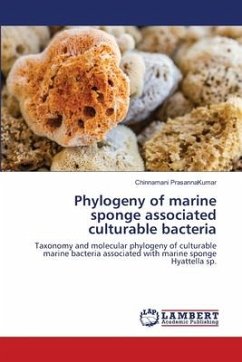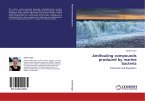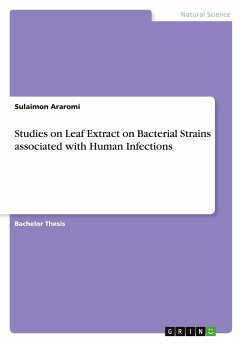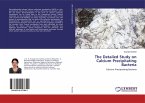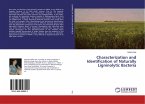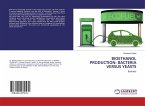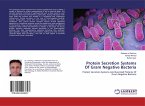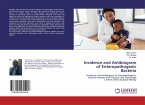Discovery of potential bioactive metabolites from sponge-associated bacteria have gained attraction in recent years. The phylogeny of marine sponge; Hyattella sp. associated marine bacterial community was studied by culturing the associated marine bacteria in Zobell Agar medium. Appropriate dilutions are plated in triplicates and incubated. Following incubation the associated culturable marine bacterial diversity was determined with aid of phenotypic characters like colony morphology and pigmentations of the individual colonies. These culturable community bacteria was isolated and purified for 16S rDNA studies. With aid of Phenol-Chloroform methodology, thick paste of DNA was obtained from the pure cultures. The PCR amplicons of size 1500 bps are generated by priming 16S1 and 16S2 primers during thermocycle process and the amplicons are made ready for sequencing through pre-sequencing treatment processes discuss previously. After sequencing the chromatograms are manually checked for mis-calls and base spacing. The chromatogram was truncated to extract the clear sequences for blast and phylogenetic analysis.

